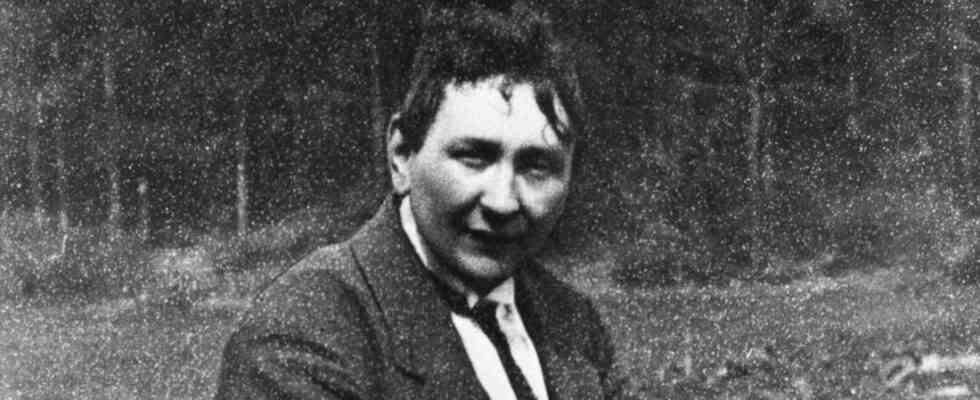Are we a people of Švejks? Whenever Czechs think about their nation, their identity or just the current politics, this question is asked. We are a people of Schwejks, one sighs, when all corona rules are circumvented even in dangerous phases of the pandemic. “We are decidedly not a people of Švejks,” said Czech Deputy Prime Minister Ivan Bartoš at the beginning of December, praising the Czechs’ brave commitment to the interests of the Ukrainians and the help for war refugees.
The fact that a nation regularly reflects on its sensitivities in relation to the literary figure of a foot soldier, who is usually depicted as portly and round-headed, is a literary success that is second to none. And one wonders how the Czechs did it before, the Švejk is only a good 100 years old.
On this 3rd of January it is 100 years since its inventor Jaroslav Hašek died in Lipnice nad Sázavou with Švejk unfinished on the table. Not even two years earlier he had begun to write about the adventures of the Prague dog dealer – Švejk in the original – who predicted the First World War, was sent to an insane asylum for it and was eventually drafted. Shortly thereafter, contemporaries ranked his Švejk with Don Quixote, Hamlet, Faust and Oblomov – but when would the Spaniards ever have all referred to themselves as Don Quixotes, let alone identify the British with the Dane Hamlet?
Round-headed icon of Czech culture: the good soldier Švejk.
(Photo: imago images/ZUMA Wire)
Hašek was no longer aware of the global success that has continued to this day, he was only 39 years old. He was born just a few weeks earlier than the other famous Prague native, Franz Kafka. Both parents’ houses were within walking distance of each other. They later shared a mutual friend, Max Brod, who contributed to their fame.
Hašek’s Schwejk was written in the small town of Lipnice, halfway between Prague and Brno, mostly in the inn “Zur böhmischen Krone”. A great-grandson of Hašek cooks there today, and there is a Hašek special beer. On commemoration days people like to wear the blue uniforms of the Empire. A romantic indulgence in old times, which is probably just a way of misunderstanding Švejk with all due respect.
His antagonists in the book never agree whether the innocent Schwejk is a hopeless simpleton or a brilliant rogue, and to this day he is misinterpreted. When Czechs use the verb “švejkovat” they certainly mean: to slyly cheat their way through.
It is simple only for appearances and convicts the obedience apparatus of silliness
Švejk is not harmless, neither a mere rogue nor a coward, as the politician Bartoš obviously understands him: he is clairvoyant in his honesty – woe to anyone who finds them self-exposingly stupid – with which he treats the entire obedience apparatus of the Empire and the army, even of the churches, in his mendacity convicted of silliness. It is no wonder that the Lipnic priest Hašek initially wanted to bury him in the corner of the cemetery for suicides.
Hašek himself was not a coward during the war, having moved out for the German Empire, he later sided with the Czech-Slovak legionnaires and eventually went over to the Bolsheviks. He also wrote abroad, published magazines, devoted himself to the Buryat language and, according to the Czech Wikipedia, is even considered the founder of literature there. So Hašek not only died of drunkenness and obesity, the war had taken its toll on him, and he was born with a weak heart.
Ex-Prime Minister and candidate for the presidential elections in January, Andrej Babiš, recently embarrassed himself in front of middle school students when he could not answer the question about Hašek’s main work. Babiš was born in Slovakia. It may be that Babiš can bury all his prospects of becoming something again in the Czech Republic. What his financial affairs and conflicts of interest, as confirmed by Brussels, as prime minister and multimillion-dollar entrepreneurs could not do, this disregard for the highest national cultural heritage may have caused. And with it the Švejk.

